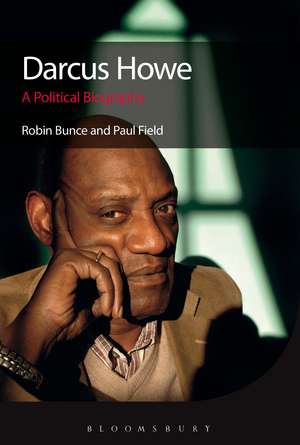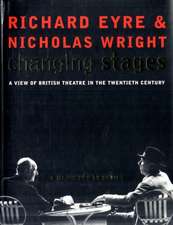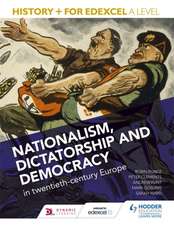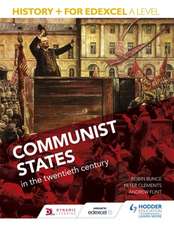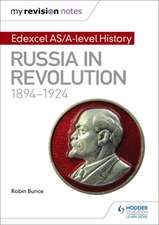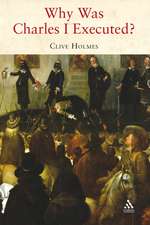Darcus Howe: A Political Biography
Autor Robin Bunce, Paul Fielden Limba Engleză Paperback – 25 feb 2015
| Toate formatele și edițiile | Preț | Express |
|---|---|---|
| Paperback (1) | 148.58 lei 6-8 săpt. | |
| Bloomsbury Publishing – 25 feb 2015 | 148.58 lei 6-8 săpt. | |
| Hardback (1) | 774.22 lei 6-8 săpt. | |
| Bloomsbury Publishing – 4 dec 2013 | 774.22 lei 6-8 săpt. |
Preț: 148.58 lei
Preț vechi: 160.24 lei
-7% Nou
Puncte Express: 223
Preț estimativ în valută:
28.43€ • 29.52$ • 23.71£
28.43€ • 29.52$ • 23.71£
Carte tipărită la comandă
Livrare economică 22 martie-05 aprilie
Preluare comenzi: 021 569.72.76
Specificații
ISBN-13: 9781474218450
ISBN-10: 1474218458
Pagini: 304
Ilustrații: 8 halftone illus
Dimensiuni: 156 x 234 x 18 mm
Greutate: 0.43 kg
Editura: Bloomsbury Publishing
Colecția Bloomsbury Academic
Locul publicării:London, United Kingdom
ISBN-10: 1474218458
Pagini: 304
Ilustrații: 8 halftone illus
Dimensiuni: 156 x 234 x 18 mm
Greutate: 0.43 kg
Editura: Bloomsbury Publishing
Colecția Bloomsbury Academic
Locul publicării:London, United Kingdom
Caracteristici
The British civil rights movement is much less well documented than the US movement but it is an area of growing interest. The most comparable book is John L. Williams' book Michael X: A Life in Black and White
Notă biografică
Robin Bunce is Director of Studies for Politics at Homerton College, Cambridge, UK, and a Bye-Fellow in History at St Edmund's College, Cambridge. He is also an editor of Twentieth Century History Review.Paul Field worked as a journalist for many years specializing in issues of policing, asylum and institutional racism, before becoming a lawyer specializing in the fields of discrimination and employment.
Cuprins
Preface Introduction - 'Darcus Howe is a West Indian' 1 Son of a Preacher Man2 ' Dabbling with Revolution ' : Black Power Comes to Britain 3 Know Yourself 4 Cause for Concern5 ' Darcus Howe is not a Comedian '6 Revolution in Trinidad: 'Seize Power and send for James'7 A Resting Place in Babylon: Frank Crichlow and the Mangrove 8 Demonstration 9 Clampdown10 55 Days at the Old Bailey11 Towards Racial Justice 12 Race Today: 'Come what may here to stay'13 Ten Years on bail: 'Darcus outta jail'14 'Thirteen Dead and Nothing Said'15 Insurrection16 Carnival: Revolutionaries Don't Wear Glitter 17 Playing Devil's Advocate 18 Slave Nation 19 Fight to the Finish Bibliography Index
Recenzii
Darcus Howe has had a somewhat dramatic personal and political life, both of which are sewn together seamlessly in the forthcoming book Darcus Howe: A Political Biography.
An obvious candidate [for the Orwell Prize] from this year's nominees is Robin Bunce and Paul Field's "political biography" of the activist and journalist Darcus Howe. The book is political in far more than its content: as the authors rightly say, Britain's Black Power movement is in danger of being written out of history.
The first detailed history of black power in Britain . . . Bunce and Paul Field have published a political biography of Darcus Howe - one of the most significant black activists in Britain - using him as a framework for a history of the black power movement in Britain.
This new book, co-authored by the Haldane Society's Paul Field, is passionately conceived, thoroughly researched, and very well written. It is thoroughly recommended ... I can also vouch for the authors' accuracy and objectivity, and the skill with which they bring key events of the last forty plus years to life ... Howe was never an organiser, nor a leader. But he has played a very considerable role in the movement for a distinctive Black British identity. This new book brings the man and forty years of tumultuous history to life, and never forgets the role of the political analysis which Howe learnt from C. L. R. James.
This is a long overdue and badly needed biographical portrait of the black Trinidadian political radical and broadcaster Darcus Howe, who as one of the leading ideological agitators of the British Black Power Movement made a critical contribution to the shaping of modern multiracial and multicultural 'postcolonial' Britain...The pioneering efforts of Bunce and Field, undertaken in close collaboration with Howe himself and his partner, Leila Hassan, mean that for the first time the essential facts of Howe's life and work are presented in one volume, complete with some remarkable photographs. At least some aspects of the fascinating, gripping, and often inspiring record of activism and campaigning that emerges will doubtless be new to the vast majority of readers, and the authors are to be commended for making this such an accessible and readable narrative that illuminates the wider civil rights and black liberation struggle in Britain.
Just how far the British Left needs to travel in order to reshape its politics via the Black British experience is revealed by the superb Darcus Howe: A Political Biography which via personal testimony revisits a history of migration, self-self-organisaton and resistance which exists largely outside of traditional Left politics.
This biography of Darcus Howe is undoubtedly a labour of love. Robin Bunce and Paul Field have made a creditable attempt to chart postwar black activism though one man's life. And there can be no other person more appropriate to build the story around - because Darcus Howe is one of the standout activists and public intellectuals of his generation ... for many of us, he will always be that man in the dock at the Mangrove trail, standing up to an institutioanlly racist state - and standing up for us all. This meticulous biography sets out the facts about a life and an era that should be far more widely known.
At least some aspects of the fascinating, gripping, and often inspiring record of activism and campaigning that emerges will doubtless be new to the vast majority of readers, and the authors are to be commended for making this such an accessible and readable narrative that illuminates the wider civil rights and black liberation struggle in Britain.
This fascinating political biography of Darcus Howe will teach even the most knowledgeable of students of Caribbean history and the struggles of the diaspora many valuable lessons... Howe survived police harassment, imprisonment, death threats from the Trinidadian state and the pressure to metamorphose into a middle class peacemaker that went with becoming something of a media star and then broadcaster. It is a testimony to the strength of his resolve that he still remains committed to struggle from below - a struggle in which black people had to find their voice but also one where he did not give up totally on the possibilities of wider class unity, although it was perhaps for others to concentrate on this. Howe persists as a troublemaker and this book is a fitting and honest testimony to his continuing contribution to the struggle for black liberation and radical change.
One of the most exciting books on the shelves at the moment
This book is a an invaluable contribution to a vital task: uncovering the history of black activism in Britain and its relationship to global trends. The authors place the meaning and impact of Black Power, so often caricatured, in a richly chronicled context. In the spirit of CLR James, a figure who rightly presides over the book, as he did over the life of its subject, they focus on grass-roots creativity, on the interventions of people on the margins. In so doing, they bring to life a series of dramatic struggles, including the Black Power revolt in Trinidad, the persecution of the Mangrove restaurant in Notting Hill and the ground-breaking resistance to it, the New Cross fire and the Brixton riots of 1981. The book is a powerful reminder of much of our recent history, a history in danger of being forgotten or filed away under glib rubrics.
Darcus Howe has been a towering figure,a powerful voice and an indominatable spirit for nearly half a century. His life embraces the history and critical importance of the struggle for justice and equality before the law. The lessons so graphically described in this book should not be forgotten by anyone lest we be condemned to relive them.
Bruce and Field's new biography shows Howe as an indomitable class fighter, a man who refuses to allow even the threat of prison, or a diagnosis of cancer to silence him...The story of their [Howe and CLR James] personal relationship and thie response to British society is interweaved into the narrative of this text, a story that remains little known outside of the black community...For those interested in the significance and development of black urban politics in Britain, this book offers an informative, stimulating and at times controversial read.
This riveting study illuminates the complexity of Darcus Howe's lifelong dedication to radical politics. Diligently researched and engagingly written, this remarkable book articulates and salutes a unique presence in modern British history; an activist whose stance against racial oppression remains undiminished, unapologetic and uncompromising, in a contemporary world too-often dominated by the shape-shifting of spin and short-term reactive thinking.
An obvious candidate [for the Orwell Prize] from this year's nominees is Robin Bunce and Paul Field's "political biography" of the activist and journalist Darcus Howe. The book is political in far more than its content: as the authors rightly say, Britain's Black Power movement is in danger of being written out of history.
The first detailed history of black power in Britain . . . Bunce and Paul Field have published a political biography of Darcus Howe - one of the most significant black activists in Britain - using him as a framework for a history of the black power movement in Britain.
This new book, co-authored by the Haldane Society's Paul Field, is passionately conceived, thoroughly researched, and very well written. It is thoroughly recommended ... I can also vouch for the authors' accuracy and objectivity, and the skill with which they bring key events of the last forty plus years to life ... Howe was never an organiser, nor a leader. But he has played a very considerable role in the movement for a distinctive Black British identity. This new book brings the man and forty years of tumultuous history to life, and never forgets the role of the political analysis which Howe learnt from C. L. R. James.
This is a long overdue and badly needed biographical portrait of the black Trinidadian political radical and broadcaster Darcus Howe, who as one of the leading ideological agitators of the British Black Power Movement made a critical contribution to the shaping of modern multiracial and multicultural 'postcolonial' Britain...The pioneering efforts of Bunce and Field, undertaken in close collaboration with Howe himself and his partner, Leila Hassan, mean that for the first time the essential facts of Howe's life and work are presented in one volume, complete with some remarkable photographs. At least some aspects of the fascinating, gripping, and often inspiring record of activism and campaigning that emerges will doubtless be new to the vast majority of readers, and the authors are to be commended for making this such an accessible and readable narrative that illuminates the wider civil rights and black liberation struggle in Britain.
Just how far the British Left needs to travel in order to reshape its politics via the Black British experience is revealed by the superb Darcus Howe: A Political Biography which via personal testimony revisits a history of migration, self-self-organisaton and resistance which exists largely outside of traditional Left politics.
This biography of Darcus Howe is undoubtedly a labour of love. Robin Bunce and Paul Field have made a creditable attempt to chart postwar black activism though one man's life. And there can be no other person more appropriate to build the story around - because Darcus Howe is one of the standout activists and public intellectuals of his generation ... for many of us, he will always be that man in the dock at the Mangrove trail, standing up to an institutioanlly racist state - and standing up for us all. This meticulous biography sets out the facts about a life and an era that should be far more widely known.
At least some aspects of the fascinating, gripping, and often inspiring record of activism and campaigning that emerges will doubtless be new to the vast majority of readers, and the authors are to be commended for making this such an accessible and readable narrative that illuminates the wider civil rights and black liberation struggle in Britain.
This fascinating political biography of Darcus Howe will teach even the most knowledgeable of students of Caribbean history and the struggles of the diaspora many valuable lessons... Howe survived police harassment, imprisonment, death threats from the Trinidadian state and the pressure to metamorphose into a middle class peacemaker that went with becoming something of a media star and then broadcaster. It is a testimony to the strength of his resolve that he still remains committed to struggle from below - a struggle in which black people had to find their voice but also one where he did not give up totally on the possibilities of wider class unity, although it was perhaps for others to concentrate on this. Howe persists as a troublemaker and this book is a fitting and honest testimony to his continuing contribution to the struggle for black liberation and radical change.
One of the most exciting books on the shelves at the moment
This book is a an invaluable contribution to a vital task: uncovering the history of black activism in Britain and its relationship to global trends. The authors place the meaning and impact of Black Power, so often caricatured, in a richly chronicled context. In the spirit of CLR James, a figure who rightly presides over the book, as he did over the life of its subject, they focus on grass-roots creativity, on the interventions of people on the margins. In so doing, they bring to life a series of dramatic struggles, including the Black Power revolt in Trinidad, the persecution of the Mangrove restaurant in Notting Hill and the ground-breaking resistance to it, the New Cross fire and the Brixton riots of 1981. The book is a powerful reminder of much of our recent history, a history in danger of being forgotten or filed away under glib rubrics.
Darcus Howe has been a towering figure,a powerful voice and an indominatable spirit for nearly half a century. His life embraces the history and critical importance of the struggle for justice and equality before the law. The lessons so graphically described in this book should not be forgotten by anyone lest we be condemned to relive them.
Bruce and Field's new biography shows Howe as an indomitable class fighter, a man who refuses to allow even the threat of prison, or a diagnosis of cancer to silence him...The story of their [Howe and CLR James] personal relationship and thie response to British society is interweaved into the narrative of this text, a story that remains little known outside of the black community...For those interested in the significance and development of black urban politics in Britain, this book offers an informative, stimulating and at times controversial read.
This riveting study illuminates the complexity of Darcus Howe's lifelong dedication to radical politics. Diligently researched and engagingly written, this remarkable book articulates and salutes a unique presence in modern British history; an activist whose stance against racial oppression remains undiminished, unapologetic and uncompromising, in a contemporary world too-often dominated by the shape-shifting of spin and short-term reactive thinking.
Descriere
This political and intellectual biography of Darcus Howe uses Howe's dramatic personal history as a lens through which to explore the British civil rights movement in the defining years of the 1970s and 80s.
